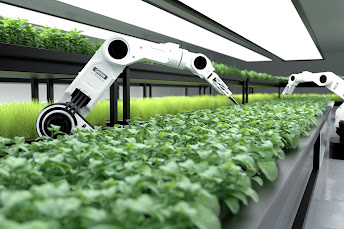Climate Change and Agriculture in India Strategies for a Resilient Future
Introduction
Climate change is an increasingly critical issue affecting various sectors worldwide, and agriculture is among the most vulnerable. In India, where agriculture is a cornerstone of the economy and a primary source of livelihood for millions, the impact of climate change is particularly pronounced. This article delves into the challenges posed by climate change to Indian agriculture and explores strategies for building a resilient future.
The Impact of Climate Change on Indian Agriculture
Temperature Variability
India has been experiencing significant temperature fluctuations, with increasing instances of heatwaves and erratic weather patterns. These changes can lead to reduced crop yields and affect the quality of produce.
Changes in Rainfall Patterns
Monsoon variability is a major concern for Indian agriculture. Irregular and unpredictable rainfall can cause droughts or floods, severely affecting crop production and leading to food insecurity.
Soil Degradation
Climate change and agriculture in india exacerbates soil degradation through increased erosion, salinity, and loss of organic matter. These changes impact soil fertility, making it challenging to sustain agricultural productivity.
Pests and Diseases
Warmer temperatures and altered precipitation patterns can lead to the proliferation of pests and diseases, further threatening crop health and yields.
Strategies for Building Resilience in Indian Agriculture
Adoption of Climate-Resilient Crops
Farmers can adopt crop varieties that are more tolerant to heat, drought, and salinity. Research and development in this area can provide farmers with the necessary tools to combat the adverse effects of climate change.
Sustainable Farming Practices
Implementing sustainable farming practices such as crop rotation, organic farming, and conservation agriculture can help maintain soil health and reduce dependence on chemical inputs.
Water Management
Efficient water management techniques, including rainwater harvesting, drip irrigation, and the use of drought-resistant crops, can mitigate the impact of water scarcity and ensure sustainable water use.
Agroforestry
Integrating trees and shrubs into farming systems can improve soil health, increase biodiversity, and provide additional sources of income for farmers.
Government Policies and Support
Government initiatives and policies that support climate-smart agriculture, provide financial aid, and offer training programs for farmers are crucial for building resilience.
Technological Innovations
Advancements in technology, such as precision farming, remote sensing, and mobile-based advisory services, can equip farmers with real-time information and tools to manage their farms more effectively.
Conclusion
Climate change poses significant challenges to agriculture in India, but with the right strategies and adaptations, it is possible to build a resilient future. By adopting climate-resilient crops, implementing sustainable farming practices, managing water resources efficiently, and leveraging technological innovations, Indian farmers can mitigate the adverse effects of climate change and ensure food security for the nation. Government support and policies will be vital in facilitating these changes and empowering farmers to adapt effectively.



.jpg)
Comments
Post a Comment